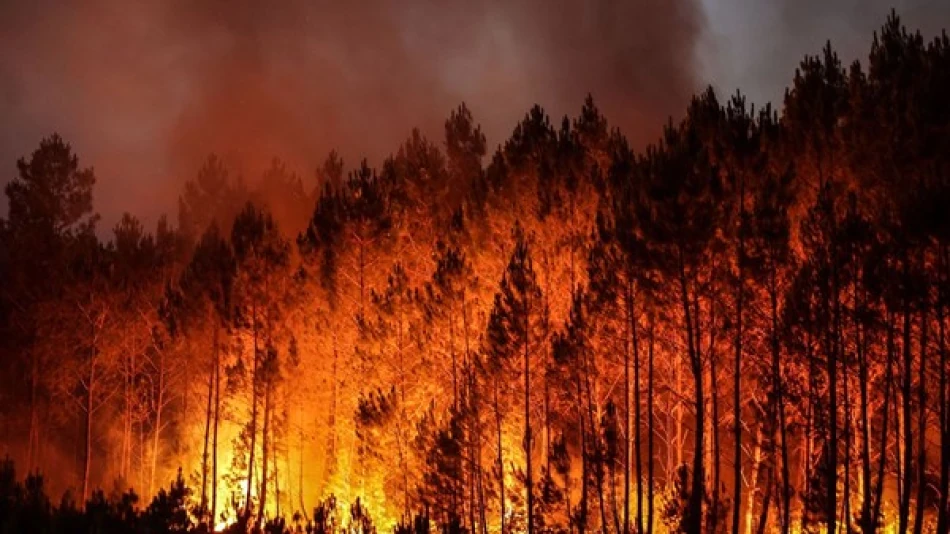
Thousands Flee Devastating Forest Fires Ravaging Southern Europe
Southern Europe Burns: Wildfires Threaten Greece's Third-Largest City as Death Toll Mounts
A devastating wave of wildfires is tearing through southern Europe, with Greece's coastal city of Patras—the country's third-largest urban center—now under direct threat as firefighters wage round-the-clock battles to protect homes and infrastructure. At least three deaths have been confirmed across Spain, Turkey, and Albania, marking another deadly chapter in what experts warn could become Europe's worst fire season in years.
Patras Under Siege: A City on the Brink
The situation around Patras has reached critical levels, with flames consuming vast swaths of pine forests and olive groves that form the economic backbone of the region. Firefighters are locked in a desperate struggle to create defensive perimeters around residential areas and agricultural facilities, but the sheer scale of the inferno is testing Greece's emergency response capabilities to their limits.
The visual impact is staggering: towering flames now rise behind residential buildings on the city's outskirts, while dozens of vehicles in a nearby impound lot have been reduced to charred metal shells. This scene underscores how quickly these fires can overwhelm urban infrastructure, transforming everyday spaces into disaster zones.
Human Cost Mounting
The toll on emergency responders is becoming increasingly severe. Fire service spokesman Vassilis Vathrakoyiannis confirmed that at least 15 firefighters have required hospitalization or medical treatment for burns, smoke inhalation, or exhaustion. "Today is another extremely difficult day with fire risk levels remaining very high in many parts of the country," he stated, highlighting the sustained pressure on Greece's fire services.
A Pattern of Escalating Crisis
This latest outbreak fits into a troubling pattern that has emerged across the Mediterranean basin over the past decade. Greece, in particular, has experienced increasingly severe fire seasons, with the 2021 blazes that devastated the island of Evia and areas around Athens serving as a stark precedent. The current fires suggest that last year's relatively mild season may have been an anomaly rather than a sign of improvement.
Climate and Geography Converge
The targeting of Patras is particularly significant given its strategic importance to Greece's economy. As a major port city connecting Greece to Italy and Western Europe, any prolonged disruption could have broader economic implications. The loss of olive groves—a cornerstone of the local agricultural economy—represents not just immediate destruction but potential long-term economic damage, as olive trees can take decades to mature.
Regional Implications and Response Capacity
The simultaneous outbreaks across multiple countries expose the limitations of national fire-fighting capabilities when faced with widespread, coordinated natural disasters. Unlike isolated incidents that can draw resources from across a country, these multi-national fires stretch response systems thin and highlight the need for enhanced European cooperation in disaster response.
The death toll, while currently limited to three confirmed fatalities, serves as a sobering reminder of the human cost of these increasingly frequent extreme weather events. Each fire season seems to push emergency services further toward their breaking point, raising questions about long-term preparedness and resource allocation.
Looking Ahead: Prevention vs. Response
The current crisis underscores a fundamental challenge facing Mediterranean countries: the traditional model of reactive firefighting may be insufficient for the scale and intensity of modern wildfires. Countries like Portugal have begun investing heavily in prevention and early detection systems following their own devastating fire seasons, suggesting a potential roadmap for regional adaptation.
As Greece battles to save Patras and surrounding communities, the broader question remains whether European nations can develop the coordinated, proactive approach necessary to address what appears to be a new normal of extreme fire weather across the continent.
Most Viewed News

 Layla Al Mansoori
Layla Al Mansoori






